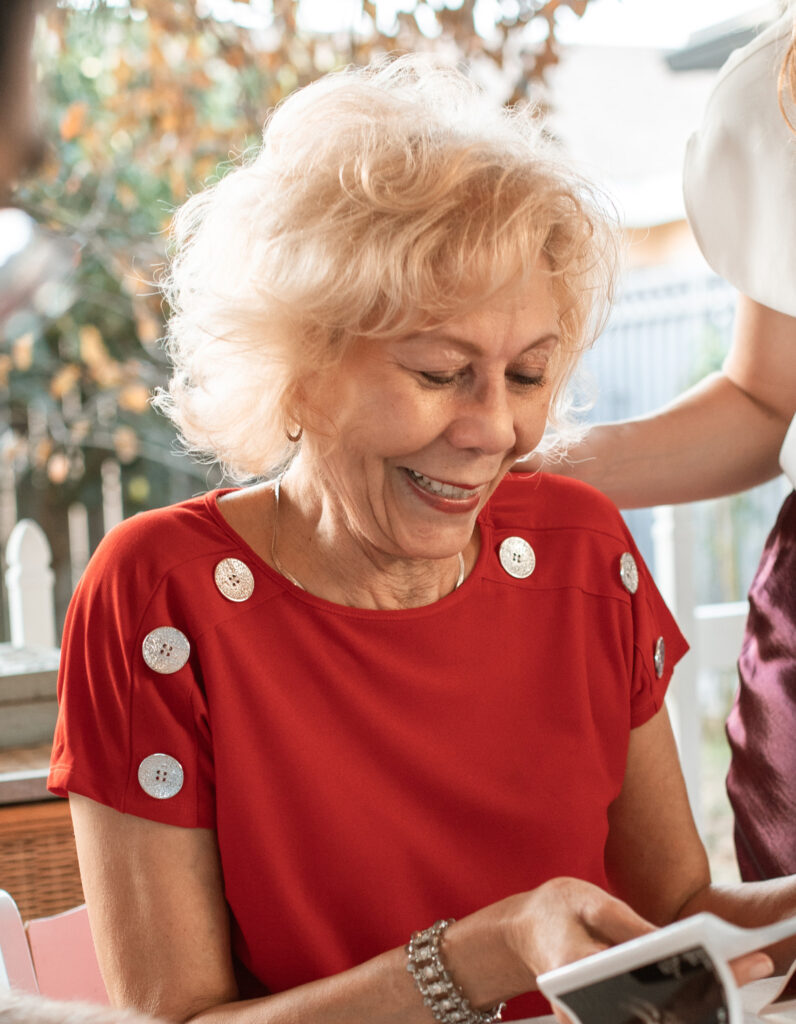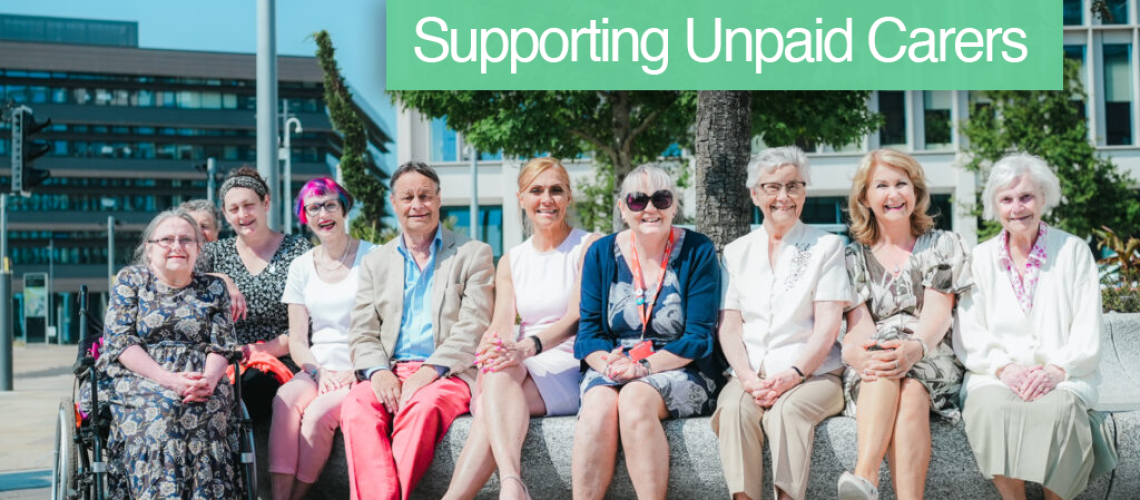Supporting Unpaid Carers through Technology : Helen's Story
HELEN’S STORY
Tendertec has worked with the Connected Places Catapult and the University of Brighton to understand how we can support unpaid carers and help them build resilience in the caregiving role through technology.
THE CHALLENGE
Today there are over 11 million people aged 65 and over in the UK. In 10 years’ time, this will have increased to 13 million people. And, with the population ageing rapidly, the number of people at risk is growing at an alarming rate. As a result, it is expected that the need for care at home will increase.
Carers UK estimates that there are 11.5 million people across the UK who give unpaid support to someone who is elderly, seriously ill or disabled. By doing so, unpaid carers are saving the Government £193 billion a year.
Many carers don’t see themselves as carers and it can often take them time to acknowledge their role as a carer. Recent research has shown that several carers reported feeling out of control in their daily life, lonely and detached from society and want support for their own issues.
SUPPORTING CARERS IS VITAL TO CREATING A FAIR SOCIETY
Through the Connected Catapult’s Homes for Healthy Ageing programme, Tendertec set out to test its care support platform, Hestia, in real life home settings with unpaid carers at the Brighton and Hove council area. We have sought to understand how Hestia can support unpaid carers and enable them to build resilience in their caregiving role.
A snapshot of demand for adult social care in 2018/19 indicated that there are over 23,000 unpaid carers in Brighton & Hove. Nearly 2,000 of them maintained their caring role while also leading a life outside of their caring responsibilities.
Along with the University of Brighton and the Connected Places Catapult, we worked with unpaid carers to shed a light on their lives, their concerns and struggles.

MEET HELEN
Helen is in her 70s and cares for her husband Mark.
Helen is the primary carer of her husband and does a lot to support him. As explained, due to his condition, she has to now support him daily with his every task apart from his personal hygiene and goes to bed late after she has prepared everything for him.
Mark was diagnosed with Alzheimers a few years ago, and since then Helen reported she has been unsure about the future due to his condition. Her goal however, is to know more about how she can manage the care burden going forward as she would really like to know how to improve both their independence safely.
“We are having to label everything as he is often confused as to where things are. We label the firelighters, his keys, the Remote, it’s very difficult”, says Helen.
As many other carers, Helen would like to be able to get some of her independence back without having the guilt and stress that comes with it when she leaves Mark alone. She reports also that she would like to know more about how she can manage the burden of caring and improve her husband’s independence in going out safely.
"Being able to have some form of normality would be good, I’m not stressed all the time but there are times in the day when I feel stressed because of his frustration".
HOW HESTIA SUPPORTS UNPAID CARERS
Tendertec’s Hestia is an AI care decision support platform using machine learning and heat sensing to perform 24/7 hidden risks audit of missed hazards and early symptoms, without wearables and without needing any interaction from elders.
Hestia’s unique prevention and care insights help carers identify hidden risks at home and give them reassurance that their loved one is keeping well and safe by:
allowing carers to connect and check-in anytime & anywhere,
receive alerts and reconstruct missed incidents to understand why and how they happened,
flag risk behaviours even when they are not present.
Over the 12 week testing at the testbed in the Brighton and Hove area, Hestia delivered new insights that can support the mapping of unpaid carers’ valuable contribution as well as the impact that caring has on their lives and wellbeing.
HELEN’S EXPERIENCE
Enhanced safety and wellbeing
During the 12 weeks of testing, Helen reported that Hestia’s insights helped her identify hidden risks, such as near-falls, and brought to light unusual behaviours and missed fall incidents. This newfound awareness empowered Helen to take proactive measures, ensuring her husband’s safety and minimising the risk of accidents.
Hestia’s data on her husband’s sleep hours proved to be particularly beneficial. Helen discovered that his condition made him more active during the night, affecting his mood and overall wellbeing. By leveraging Hestia’s insights, Helen gained a deeper understanding of his daily sleep patterns.
This data-driven approach allowed her to structure their evenings based on her husband’s behaviour patterns, reducing the chances of him being at risk. Furthermore, Helen was able to understand changes in her husband’s behaviour and predict when unusual behaviours might lead to a near fall. This foresight was instrumental in her ability to address potential risks before they escalated. Helen went on to add, “Being able to structure evenings based on some behaviour, for example factoring times when I’m out the house for when he is likely to not put himself in any danger of falling.”
"The data was useful when I could see when he would get vigilant with his behaviour as this can lead to falls."
Increased peace of mind & personal freedom
Helen’s heightened awareness around her husband’s condition and behaviour patterns, powered by Hestia’s insights, gave her a peace of mind that if she were to go out and needed to check in on her husband, having Hestia would have been helpful to make sure nothing serious was going on.
With Hestia by her side, Helen reported she gain confidence to enjoy more moments of normality and the freedom to attend to other responsibilities and engage in social activities without being constantly and excessively concerned.
Hestia became a powerful tool in their care routine, providing Helen with peace of mind even when she needed to step out.
Better communication with other carers
In Mark’s case, because of his condition, he tends to be more active the night hours, which can then affect his mood. The Hestia data around sleep hours added to her understanding also as to the daily hours of sleep, and supported her having informed conversation with the nurses that supported Mark, ensuring he received targeted care tailored to his specific needs.
Helen appreciated Hestia’s ability to share information with the circle of support, which ensures that all carers have access to the same information about her husband, reducing frustration and improving efficiency in the caregiving process.
“This provides essential information, so the carer can intervene and avoid something worse happening. It is also very helpful to see active and inactive time, particularly at night, which can be critical for planning care. Establishing patterns of behaviour can help determine the level of care needed and remove some of the pressures around the caring role. Using Hestia has definitely raised my level of awareness and understanding.”, Helen added.
“I was amazed to see how Hestia picks up falls and near falls. This provides essential information, so the carer can intervene and avoid something worse happening."

Hestia is here to support carers in their caring journey.
If you would like to find out more about how Hestia can support you and your loved one, visit: https://tendertec.org/unpaid-carers/

